- Home
- Gerald Hammond
A Shocking Affair (Three Oaks Book 10) Page 3
A Shocking Affair (Three Oaks Book 10) Read online
Page 3
His philosophy rang an only slightly muted bell with me. So I accepted a cigar and we puffed companionably, two naughty old boys enjoying themselves together while others’ backs were turned. ‘Society is forgetful on the subject,’ Peter resumed, puffing smoke at the ceiling. ‘When you and I first met, we were offering our lives to our country. And a grateful country rewarded us with pennies but filled in the long hours of boredom by providing us with cheap and sometimes even free tobacco. Many years later, when we are good and hooked, society does an about-turn and decides that we are evil and that tobacco will kill us. We are not even accorded the rights traditionally given to other persecuted minorities. Not a word now about lands fit for heroes to smoke in.’
‘It’s time that they made up their minds,’ I agreed. ‘But perhaps the pendulum will swing back again. Many things that we used to be warned away from are now found to be good for us after all.’
Our conversation roamed, setting the world right. At one point I thought that he was about to explain the unadmitted visitor but we were distracted. An eye-watering smell seemed to fill the room. There was no doubt where it came from. Spin looked uncomfortable. Even the two Labradors seemed surprised.
‘Oh dear!’ Sir Peter said mildly. He held his cigar high above his head, but whether for fear of contamination or of an explosion I could not tell. ‘This may put a crimp in our future relationship. I like a dog to be company as well as a worker.’ I was feeling my drink but he was no more than mellow.
‘At Three Oaks, the dogs are in outside kennels. John wouldn’t know if a dog suffered from flatulence.’
‘Well, I can’t have him in here with me if he’s going to do that all the time. And I don’t suppose he’ll be welcome in the kitchen. Or is there a cure?’
I sipped my brandy while I thought back to advice that I had once heard John give to a horrified client. ‘All is not lost,’ I said. ‘I don’t know whether it’s a palliative or a cure, but diet certainly helps. Charcoal biscuits. And the addition of bran to the feed.’ I mentioned the name of a proprietary compound also recommended by John.
‘I can believe charcoal,’ Peter said. ‘But bran? Who was it said that a fibre diet is never quiet?’
‘Not I.’
Peter stubbed out his cigar. ‘Many a true word spoken in jest. But you give me hope,’ he said. ‘Ronnie can go shopping for me in the morning. But for now, my new friend seems to have made this room uninhabitable. We’ll give the dogs one last turn in the garden, and then I suggest bed.’
‘I was going to have Spin with me for the first night,’ I said as we went out into a warm spring night. ‘But now I’m not so sure.’
Sir Peter humphed. ‘The sooner he learns to sleep with the other two in the gun room, the better. Labradors don’t mind a bit of a niff. Hope it doesn’t corrode the guns.’
Chapter Two
I can never sleep late in a strange bed. In my youth I was able to drop into a deep sleep and snap awake, fully refreshed, seven or eight hours later, but with age has come sleep of a different order, deep at times but rising near the surface at others. During those periods of partial wakefulness I was aware of the unfamiliar softness, the different texture of the sheets and, later, filtered daylight of a different quality from that at home.
Sleep soon deserted me and I got up and went through my morning ritual. It was early, but I found Peter already working his way through a plate of bacon, eggs and fried bread – all the things loaded with cholesterol, in fact, that a man with a heart condition should avoid. Despite my sympathy with his stand against those embargoes which, taken all together, would soon ensure death from starvation or boredom, I contented myself with my usual breakfast of cereal and a slice of toast.
Spin had met me in the hall, but his greeting was no more than the usual ‘Good morning!’ rather than the frantic relief of a worried dog. The omens were good. He felt at home.
Some minutes later, Peter leaned back to look under the long table where, I now realized, the other two dogs were curled together, awaiting handouts. ‘Spin seemed to be making good progress yesterday,’ he said. He buttered another slice of toast, cut it into thirds and distributed it under the table. ‘And there was no howling in the night. I suppose it’s still too early to shoot rabbits over him?’
‘It is, if you care how he settles in,’ I said firmly. ‘Now is the time, before you’ve impressed him permanently with your status as pack leader, when he may begin to wonder if he doesn’t know his job better than you do. Don’t rush him. Keep up the training exercises today. See how he does and if all seems set we’ll try him tomorrow. And don’t look at me as though I’d stolen your rattle,’ I added. ‘He’s your dog now and you can do as you like. I’m only here to advise.’
He gave a bark of laughter that fetched the dogs out from under the table. ‘I’m sure it’s good advice,’ he said, ‘and I’ll stick with it. But nobody was ever thanked for handing out good but unwelcome advice. Patience never did rank high among my virtues and it seems to get scarcer as the days become more precious. If you’ve finished, shall we move?’
He had already given the dogs a morning walk and put Spin through his paces, he told me. We walked out into a cool, bright morning. ‘If we can’t shoot, shall we fish?’ he suggested.
‘I can go along with that,’ I said.
A small lorry with a trailer behind it was coming up the drive. Peter clicked his tongue impatiently. ‘It’s the local builder,’ Peter said. ‘McAnderton. I do want a few words with him but I’ll tell him that I can’t waste time on him today.’
I fetched my rod and other gear. When I came out again, the builder’s lorry was turning out of the archway and Peter was soon on my heels with a ready-assembled rod over his shoulder. We left the dogs. The Labradors seemed to understand that the presence of fishing rods meant that nothing of any interest was on the programme. We crossed the lawn and took a path through the wood. As we went, he said suddenly, ‘That was my granddaughter who turned up during dinner last night. I suppose the Calders told you?’
‘They didn’t say a word.’
‘Amazingly discreet of them, but it’s really no secret. She is the daughter of my late son. She’s all the relatives I have left, apart from a remote female cousin in Tasmania, so the baronetcy will die with me.’ He broke off as we crossed a stile and then resumed. ‘She’s a student at Edinburgh University. Stays in a hall of residence. You might say that she’s the reason I bother to go on living. I believe, sincerely believe,’ he said fiercely, ‘in giving them the freedom to learn from their own mistakes, but not if the mistakes are heading them towards disaster. She’s taken up with a boyfriend – a lover, I suppose one has to assume these days – who I simply can’t stand at any price. It broke my heart to turn her away but that lout does not cross my threshold and that’s that. If he thinks he can seduce his way into a fortune he can think again.’ He had been working himself up. His hand shook and I could hear a similar tremor in his breathing. ‘Forgive my crudeness, my dear chap,’ he added more gently. ‘It gets me hot under the collar to think about it.’
‘I understand,’ I said. I tried to lighten his mood. ‘I’d probably feel the same way. Fortunately, I don’t have to.’
‘God spared you?’
‘Exactly. There was a time when Isobel and I felt cheated because we had no children. Now, as we see our friends driven to distraction, we realize that fate was smiling on us.’
He stopped suddenly in the middle of the path. ‘Perhaps you really are the lucky ones. There’s so little one can do. To be so impotent . . . Tell me something,’ he said. ‘You’re almost ages with me. Do you find life still worth living?’
He meant it as a serious question and I gave it serious thought. ‘It’s not something I think about very often,’ I replied after a moment. ‘I accept the aches and pains and not being able to do everything that I used to do. On the other hand, I’ve settled into a good sort of life and I take full advantage of the privileges of
age. Sometimes it gets boring but I’ve no real complaints. And you?’
He started walking again. ‘Sometimes I feel that the aches and pains curve is about to intersect with the joy of living curve and it’s time I was away. And I’ve no stomach any more for the hassle of business. Perhaps I’m tired, tired. You see, it’s always been in my nature to look forward, but now there’s so little forward left and looking back I seem to remember nothing but my mistakes. I can’t start anything and be sure that I’ll be around to finish it. But then I come to a morning like this and go fishing with a friend, and I’m damned if I won’t struggle on for a few more years.’ He was looking more relaxed. His colour had improved.
I found that I was flattered that he should think of me as a friend.
The wood was more a series of glades and tree strips. Well-grown pheasants, the survivors of last year’s birds, were scuttling about in the undergrowth. We spent the next hour on the banks of a small loch. It was half-hidden among the trees but these had been kept back from the waterside to allow for careful overhead casting. The presence of fish was attested by occasional splashy rises, but they seemed totally uninterested in my various offerings. Peter, on the far side of the loch, I noticed, was casting skilfully with a beautiful old split-cane rod, laying a long, straight line dead to the centre of the previous ring on the water, but with no better result.
Before long, we were interrupted. From across the water I heard the beep of a mobile phone. I knew that he carried one but had assumed that this was for the same reason that I carried mine – in case of another heart attack or other emergency while alone in the countryside. Peter walked around the loch to join me. He looked tired. ‘I have to go into Newton Lauder,’ he said. ‘I tried to clear a few days for fun and games but business still calls and sometimes I have to listen. Unless you have other ideas, I suggest that you fish on and then join me for lunch at the hotel, around one.’
I said that that sounded a reasonable programme and he nodded. ‘I’ll tell Mary that we’ll both be out. If you get there too early, you could call in at Keith’s shop across the Square. It’s always good for a browse. If I hurry I’ll have time to put Spin through his paces once more before I go.’
I was left to my own devices. A trout rose nearby. The only insect life seemed to be the midges on the water so I made up a team of three Black Gnats and persevered. Either the selection was right or my luck had turned. By noon I had three acceptable brown trout on the bank. What seemed like a few minutes later I glanced at my watch and found that I had left it rather late. I hurried back to the house, patted all three dogs on the way through the garden, delivered my fish to Mrs Fiddler, made myself comparatively respectable and drove into the town.
Parking in the Square, I cast a regretful glance across to the shop – almost dwarfed by the small supermarket next door – where a display of knives, pigeon decoys and fishing tackle on a foundation of cartridge boxes caught the eye of anyone with a sporting bent. There was no doubt that it was my sort of place. But the CLOSED sign was already in the glass door and my host would be waiting. I hurried into the hotel.
I found Peter Hay in the cocktail bar. He was deep in discussion with a fat, bald little man of about my own age, but he spotted me through the gathering of lunchtime drinkers and the two came to meet me.
I shook hands with Ralph Enterkin, the stranger. ‘How was the fishing?’
‘Improving. I got three after you left,’ I told Peter. ‘Just under a pound each.’
He seemed genuinely pleased. ‘Well done,’ he said. ‘Mary will be delighted. Trout is one of her many specialities. I’m afraid my mind wasn’t really on the job. I’ve booked a table. Ralph is lunching with us. Shall we go through? You can have your drink at the table. We’ll be more private.’
He was right. The bars had been almost packed but we had the dining room to ourselves. Most of the locals, it seemed, preferred a bar snack to a full lunch on a weekday. The other two were in abstemious mood but Peter invited me to order whatever I wanted to drink. I said that I would be satisfied with a pint of beer and it was brought through from the bar by a cheerfully plump lady whose attractiveness managed to shine through the layers of fat. I wondered whether Newton Lauder was renowned for the beauty of its female population or if perhaps, now that I had reached the age at which my sexual activities were usually limited to mere voyeurism, all female persons had started to look beautiful to me. I was relieved when our food was delivered by a waitress who could by no stretch of my imagination have been called beautiful.
Mr Enterkin was on easy terms with the more attractive waitress. He did not seem to be the sort of man to be ‘carrying on’ with a barmaid and this became even less likely when he excused himself for a moment and Peter explained that he was the premier local solicitor. Enterkin and I soon discovered that our reminiscences intersected, as he had had some involvement on the legal side in several major cases of fraud in which my bank had nearly or actually suffered. He had even prepared the defence of one of the fraudsters who I knew for a fact to be as guilty as sin and, to my indignation, had stage-managed his acquittal, a minor miracle for which Enterkin showed no shame. In his view, he said, if the law said that somebody was guilty or innocent then it was so, even if he personally knew the reverse to be the case. During the course of a pleasant lunch I was drawn out on the subject of my experiences in merchant banking and it may be that an attentive and flattering audience led me into being too expansive on the subject.
When the meal was finished Mr Enterkin withdrew, remarking that he could be found in his office for the rest of the working day. I thought that he had exchanged with Peter a glance, the significance of which was lost on me. Peter looked at me searchingly for a few seconds.
‘I have something to ask of you,’ he said seriously. ‘It seems that the hour produces the man. Ralph Enterkin handles all my local business and family affairs. He also has charge of my will, although he gives it a fancier name. He, individually, is named as one of the executors. But although he’s a good lawyer he’d be the first to admit that he has his limitations. He knows company law but he has little experience of the machinations of high finance. And as far as he’s concerned the value of farming is entirely scenic. He can carry out the conveyancing or draw up a lease, but if he was asked a question about good farming practice, he’d be lost. On the other hand, I seem to remember you saying that you were brought up on a farm and you certainly seemed to be familiar with estate management when we were associated in the past.
‘The other executors of my will were an Edinburgh firm of solicitors who have been handling any broader business matters and also factoring the farms. Unfortunately, I’ve had to drop them and I need a replacement as co-executor, somebody who I can trust and who has wide financial experience. I’m making provision for a substantial fee. So what do you think? Would you care to act?’
‘I’ve been retired for a good few years,’ I said doubtfully.
‘But you’ve kept up with the world of business.’
‘How would you know that?’
‘I watched you at breakfast with the newspaper. You turned to the business pages first and the news afterwards.’
‘The news is filled with disasters and politicians doing the expedient thing,’ I explained.
‘Can you separate the two? You’ve just put your finger on the reason why, apart from two ventures onto the Regional Council, I’ve steered very clear of politics.’
‘You never thought of parliament?’
‘I was invited to stand, more than once. I couldn’t have faced the hypocrisy of it all. I see that a recent survey found that eighty-six per cent of the public mistrusted all politicians. What I want to know is, where are the other fourteen per cent? I never met any of them.’ He laughed shortly and then returned to the original subject. ‘And it would have meant being away from here for longer than I’d have liked. Life’s too short for that.’
His words were a reminder. ‘I could predecease you
,’ I pointed out.
He shrugged. ‘In that eventuality I should have to look around yet again. But I think it unlikely. You’ve had one minor heart attack, I think you said?’
‘True,’ I said. ‘But who’s counting?’
‘I am. I’ve had four and two bypasses,’ he told me, not without a touch of pride, ‘and now I’m on a pacemaker.’
The exchange had given me time to think. I had been admitting to myself that retirement, although pleasant, had seldom offered any mental stimulus. Perhaps this was my chance to savour again the challenge of responsibility. If, that is, Peter should ever die. Despite what he had said, he seemed immortal. And although I was ostensibly there on business I was in fact the guest of a generous host and I had been wondering how to repay his hospitality. ‘I’ll be happy to be named,’ I said.
‘That’s splendid! I’m immensely grateful, my dear fellow. I must just pop in and see Ralph again for a few minutes. Why don’t you go back to the house? Have a walk or a rest or a cup of tea or something. Go fishing again if you like. I’ll be with you again shortly and we can think what to do with whatever’s left of the afternoon.’
We parted in the Square, which was really a triangle. Peter headed for an old-fashioned three-storey block of what seemed to be offices across the narrow end of the triangle. The programme that he had suggested seemed reasonable but first I headed for the gun shop. I was served with cartridges by a thin, grey-haired man with a slight stammer, who I took to be Keith Calder’s partner and who was helpfully knowledgeable about the best trout-flies for the time and place.
I carried my purchases out to my car and drove back up the hill.

 Home to Roost
Home to Roost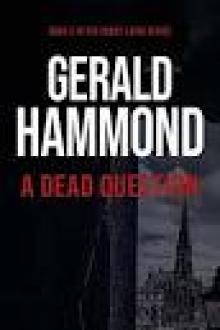 A Dead Question
A Dead Question Twice Bitten
Twice Bitten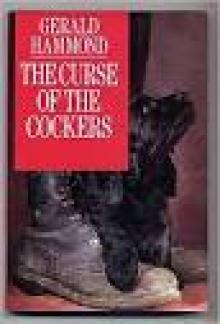 The Curse of the Cockers
The Curse of the Cockers In Loving Memory
In Loving Memory Illegal Tender (Three Oaks Book 12)
Illegal Tender (Three Oaks Book 12) Cold Relations (Honey Laird Book 1)
Cold Relations (Honey Laird Book 1)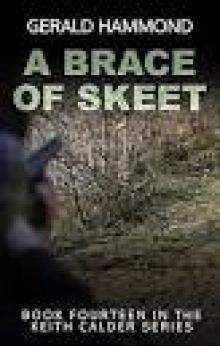 A Brace of Skeet
A Brace of Skeet Silver City Scandal
Silver City Scandal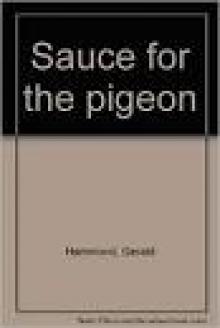 Sauce For the Pigeon
Sauce For the Pigeon Cold Relations
Cold Relations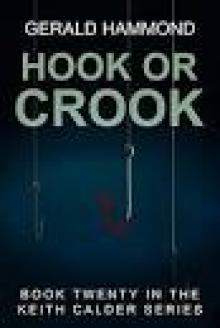 Hook or Crook
Hook or Crook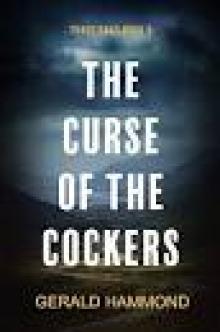 The Curse of the Cockers (Three Oaks Book 5)
The Curse of the Cockers (Three Oaks Book 5)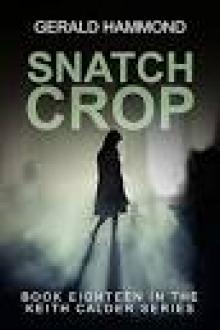 Snatch Crop
Snatch Crop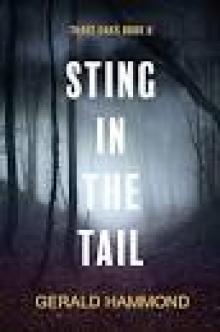 Sting in the Tail (Three Oaks Book 6)
Sting in the Tail (Three Oaks Book 6)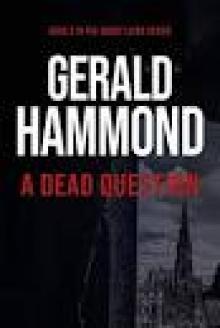 A Dead Question (Honey Laird Book 2)
A Dead Question (Honey Laird Book 2)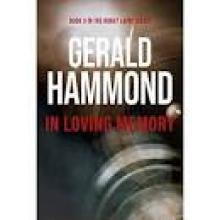 In Loving Memory (Honey Laird Book 3)
In Loving Memory (Honey Laird Book 3) Thin Air
Thin Air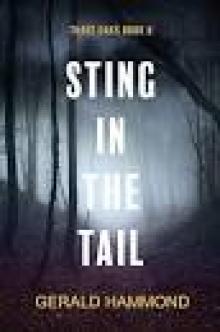 Sting in the Tail
Sting in the Tail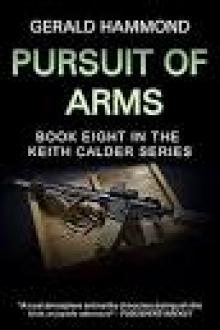 Pursuit of Arms
Pursuit of Arms The Game
The Game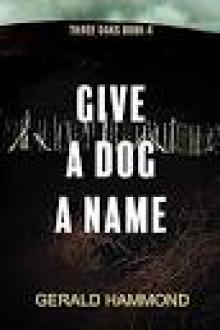 Give a Dog a Name (Three Oaks Book 4)
Give a Dog a Name (Three Oaks Book 4) Fair Game
Fair Game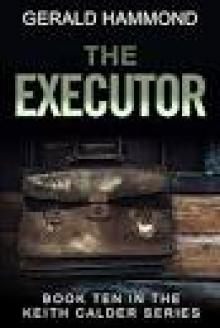 The Executor (Keith Calder Book 10)
The Executor (Keith Calder Book 10) Whose Dog Are You? (Three Oaks Book 2)
Whose Dog Are You? (Three Oaks Book 2)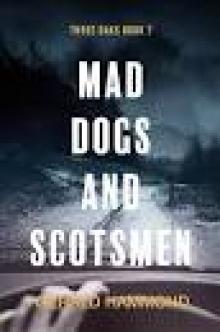 Mad Dogs and Scotsmen (Three Oaks Book 7)
Mad Dogs and Scotsmen (Three Oaks Book 7) Cousin Once Removed
Cousin Once Removed The Worried Widow
The Worried Widow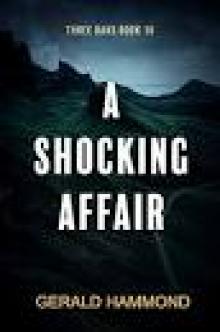 A Shocking Affair
A Shocking Affair Dead Weight (Three Oaks Book 11)
Dead Weight (Three Oaks Book 11) Whose Dog Are You
Whose Dog Are You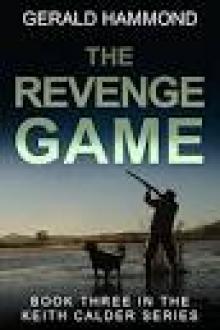 The Revenge Game
The Revenge Game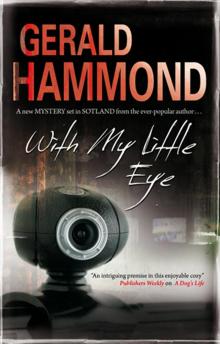 With My Little Eye
With My Little Eye Doghouse (Three Oaks Book 3)
Doghouse (Three Oaks Book 3)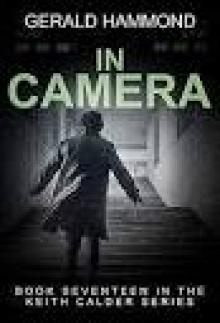 In Camera
In Camera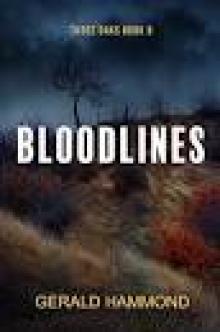 Bloodlines (Three Oaks Book 8)
Bloodlines (Three Oaks Book 8)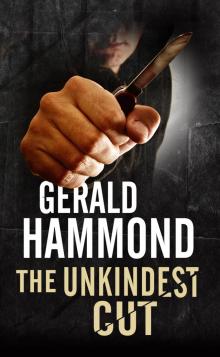 The Unkindest Cut
The Unkindest Cut